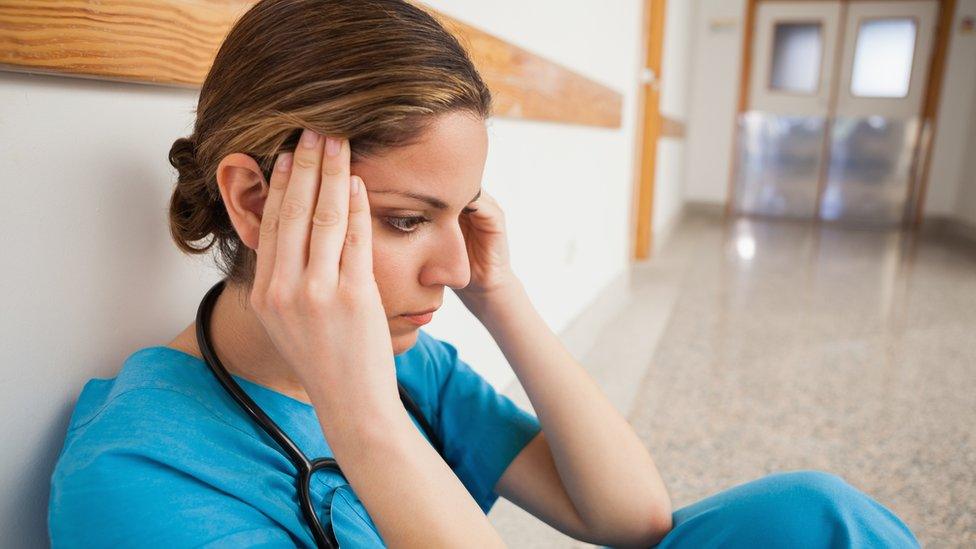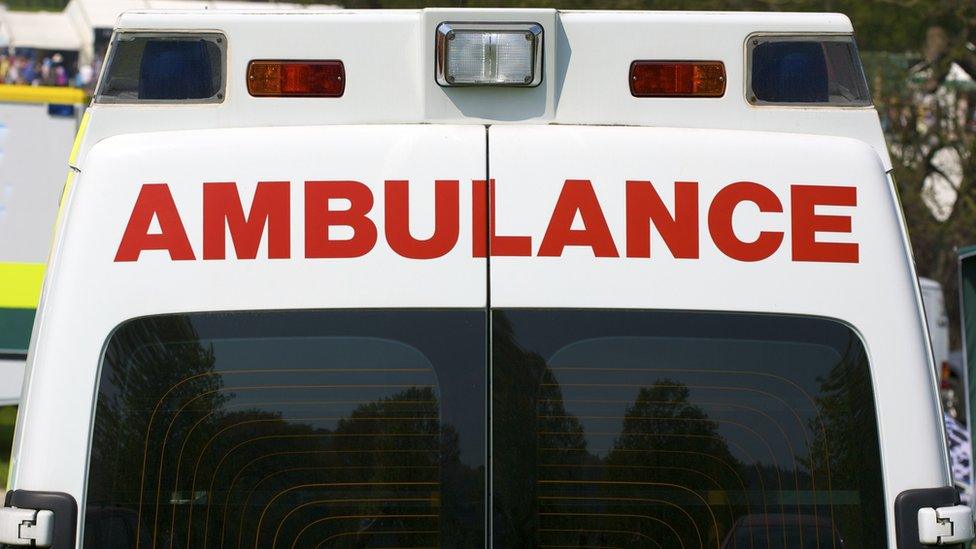Has NHS failure become the new norm?
- Published
- comments

With both the doctors' and nurses' annual conferences taking place in Belfast and Glasgow respectively, this would normally be a week when the state of the NHS takes top billing.
But not this year. The coverage is pretty muted. Of course, the EU referendum has something to do with that.
However, there is also a sense that something else is at play. After months of deadlock in the junior doctor dispute and a constant barrage of negative headlines about missed targets, there seems to be a certain weariness that has crept in when it comes to the debate around the state of the health service.
It begs the question: has failure become the new norm? After all, week after week there seems to be fresh evidence of declining standards, but instead of provoking outrage there seems to be an acceptance that we should not expect as much as we used to.
The influential commentator Nigel Edwards, of the Nuffield Trust, highlighted this this recently, describing a "creeping sense of inevitability" that failure will happen., external
January, February and March each saw A&E units in England record new worst-ever monthly waiting times since the four-hour target was introduced in 2004.
The target has been met just once in the past 18 months with bosses at NHS England left to resort to the rather defeatist defence that while it is getting worse, it's still better than many other countries.
Ambulances are struggling too, with a sharp deterioration in the number of life-threatening cases reached in the target time of eight minutes. Cancer targets and the 18-week goal for seeing patients needing routine operations have started to be missed too. Serious problems can be found in the health systems in Wales, Northern Ireland and Scotland too.

It is why Royal College of Nursing general secretary Janet Davies has this week been describing the situation facing the NHS as an "endless winter", external and these kind of pressures the new norm.
But it is not only the targets that show the extent of the problems - inspectors are also finding worrying examples.
The Queen Alexandra Hospital in Portsmouth was recently criticised for the chaos that had engulfed it. The situation got so bad, inspectors said, that a tent had to be erected at the site of a motorway crash because ambulances were stuck at the hospital unable to unload their patients as A&E staff were over-run.
These are shocking stories, that are becoming all too familiar. Overall, out of the 182 ratings given to hospital, community, mental health and ambulance services under the new inspection regime, 121 have been inadequate or require improvement.
Ministers defend themselves by saying the NHS is coping admirably with the extra demands being placed on it.
Compared to six years ago 6,400 more people a day are being seen at A&E, 26,000 more people are being seen as outpatients and 16,000 more diagnostic tests are being carried out. That's the workload of about a dozen new hospitals.
And they point out extra money is being invested. That is true. However, the fact remains the biggest chunk - £3.8bn - is being given this year, but two-thirds of that looks like it will have to go on paying off last year's deficits.
The result? A feeling of gloom among both those who work in the health service and those who are treated by it.
Polling of more than 1,200 adults by the BMA ahead of their conference this week found that eight in 10 of them were worried about the future of the NHS.
An NHS Confederation survey of managers found over nine in 10 were not confident they could meet the savings targets being asked of them and only one in 10 nurses asked by the Royal College of Nursing thought the NHS was able to cope with the demands being placed on it.
Such defeatism leads to an expectation that standards will decline further - and when that happens the news value of the event diminishes.